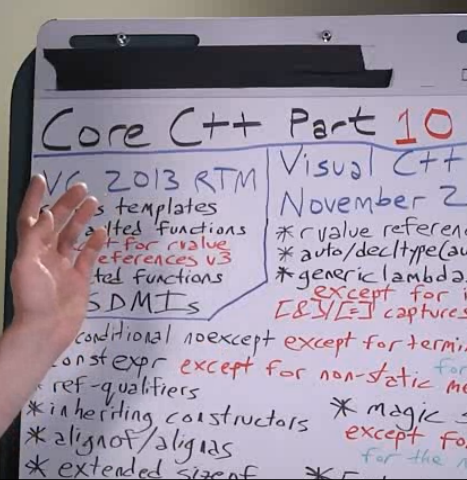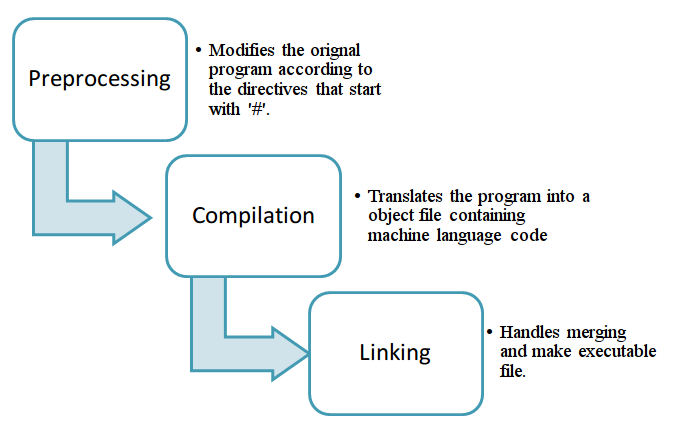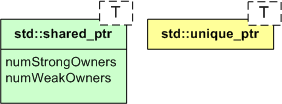Core C++ #10 -- Stephan T. Lavavej

Core C++, 10 of n (Nov 2013 CTP)
by Stephan T. Lavavej
From the summary:
In part 10, STL explores the new features in the Visual C++ Compiler November 2013 CTP (Community Technology Preview), in addition to the features that were added between VC 2013 Preview and RTM.
Features included in the November CTP ( generic lambdas!!! Smiley ):
C++11, C++14, and C++/CX features:
- Implicit move special member function generation (thus also completing
=default)- Reference qualifiers on member functions (a.k.a. "
&and&&for*this")- Thread-safe function local static initialization (a.k.a. "magic statics")
- Inheriting constructors
alignof/alignas__func__- Extended
sizeofconstexpr(except for member functions)noexcept(unconditional)- C++14
decltype(auto)- C++14
autofunction return type deduction- C++14 generic lambdas (with explicit lambda capture list)
- (Proposed for C++17) Resumable functions and
await

 Do you know a beginner who'd like to learn C++? Or even just learn how to program... using C++?
Do you know a beginner who'd like to learn C++? Or even just learn how to program... using C++? Life'n'gadget just published a nice overview of the basic C++ compilation model, useful for people who are new to programming in C++.
Life'n'gadget just published a nice overview of the basic C++ compilation model, useful for people who are new to programming in C++. A little nugget about the free-as-in-no-overhead-ness of
A little nugget about the free-as-in-no-overhead-ness of  The start of my series about the papers for the upcoming Chicago meeting, starting with C for Concurrency:
The start of my series about the papers for the upcoming Chicago meeting, starting with C for Concurrency: